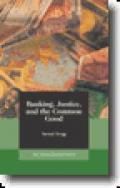


Over at the Gospel Coalition last week I reviewed Larry Siedentop’s Inventing the Individual: The Origins of Western Liberalism. As I conclude, “The story he tells is true, but at some points only half-true. The half-truth is still valuable, though, if for no other reason than that it runs so counter to much contemporary self-understanding. Siedentop’s interpretation helpfully casts doubt on the dominant narrative of secularism’s emergence from the oppressive claims of God and religion.”
One way of understanding the half-truth of Siedentop’s narrative is that he is right to point out the Christian roots of liberty and liberalism in the modern West, but incorrect in his understanding of Christianity and Christian liberalism. There is more than one kind of liberalism, and some of them end up in not liberty but tyranny.
Confusions abound, and much of our understanding turns on proper definitions. Take, for instance, the word liberalism. For many, this conjures up images of secular, progressive politicians and ideologues. While this may be the dominant contemporary political identification, there is also a classical understanding of liberalism that is worthy of engagement. And in the religious realm, liberalism has yet different meanings, such that J. Gresham Machen’s classic work Christianity and Liberalism would identify in the following way: “the many varieties of modern liberal religion are rooted innaturalism–that is, in the denial of any entrance of the creative power of God (as distinguished from the ordinary course of nature) in connection with the origin of Christianity.”
In this way our understanding of the relationship between Christianity and liberty, whether in historical or normative terms, will depend upon our definitions. And as Machen would have it, proper definitions are a laudable, if controversial, place to start: “Clear-cut definition of terms in religious matters, bold facing of the logical implications of religious views, is by many persons regarded as an impious proceeding.”
For more on the relationship between Christianity and liberty, see Sam Gregg’s review essay, “How Christianity Created the Free Society.”









